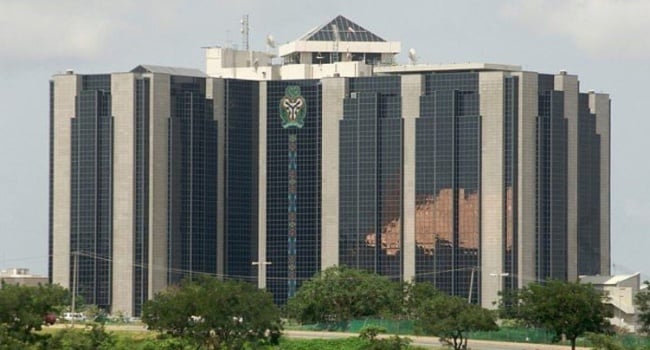Renaissance Capital says Access Holdings, First HoldCo, First City Monument Bank (FCMB), United Bank for Africa (UBA) and Zenith Bank are affected by the Central Bank of Nigeria’s (CBN) directive that lenders under the regulatory forbearance suspend dividend payments to improve their capital base.
During economic hardship or crisis, regulatory forbearance is implemented by a government or regulatory agency to temporarily suspend some regulations, to provide relief to businesses or banks facing financial difficulties and unable to repay their loans under certain terms and conditions.
On Friday, the CBN directed banks to suspend dividend payments to shareholders temporarily, defer bonuses to directors and senior management staff, and halt investments in foreign subsidiaries or new offshore ventures to enhance capital buffers and provisioning adequacy for their forbearance exposure and single obligor limits (SOL).
The temporary suspension is expected to remain in place until banks have fully provisioned and phased out their regulatory forbearance.
Advertisement
In a report on Monday titled ‘Nigerian Banks, Cash is King,’ Renaissance Capital said six months ago it predicted the end of regulatory forbearance, and the CBN has now directed banks to boost provisions and strengthen capital buffers.
The company also commended the CBN for the directive, but suggested the financial regulator cut the cash reserve ratio (CRR) to ease pressure on lenders.
“As a result, we expect interim and final dividend payments for banks under our coverage with significant exposure to be paused until they have made adequate provisioning for their forbearance exposure,” Renaissance Capital said.
Advertisement
“Based on our estimates, ZENITHBANK, FIRSTBANK, and ACCESSBANK (banks within our coverage universe) have significant forbearance exposures of 23%, 14%, and 4%, respectively, of their gross loan books.
“Similarly, in line with our estimates, FIDELITYBK and FCMB, the two top tier‑II banks, have forbearance exposures of 10% and 8% of their gross loan books, respectively.
“In contrast, STANBIC and GTCO have 0% forbearance exposure in their gross loans, based on our estimates. GTCO adequately provisioned and wrote off its forbearance exposures last year. Of note, our estimates for FIDELITYBK, FCMB, ACCESSCORP, GTCO, and UBA are based on recent engagements with management. However, our ZENITHBANK estimates are based on our last engagement with management in December 2024.
“In absolute terms, we estimate regulatory forbearance exposures at $304 million, $887 million, $134 million, $296 million, $282 million, and $1.6 billion for ACCESSCORP, FIRSTHOLDCO, FCMB, FIDELITYBK, UBA, and ZENITHBANK, respectively.
Advertisement
“Based on our forbearance exposure estimates, we believe FIRSTHOLDCO, FIDELITYBK and ZENITHBANK could breach its SOL due to its estimated forbearance exposure. While forbearance exposures are not always tied to a single client, we believe they are predominantly concentrated in loans to a major Oil & Gas (O&G) counterparty (particularly in the upstream and refinery subsectors).”
Renaissance Capital, following its engagement with FCMB, said the group remains compliant with its SOL, as its largest forbearance loan to a single client stands at $68.1 million, below its SOL threshold of $94 million.
‘CASH PROFITS TRUMP ACCOUNTING PROFITS’
Renaissance Capital said it has calculated the full year 2024 (FY24) and first quarter (Q1) 2025 cash profits for Nigerian banks under its coverage, following the CBN’s directive and release of FY24 and Q1 2025 results.
Advertisement
“We believe investors should focus on cash profits rather than the accounting profits reported by Nigerian banks. The reported accounting profits include one-off items that are largely unrealised in cash and fail to reflect the adverse effects of regulatory forbearances,” the firm said.
“Regulatory forbearances do not reflect in accounting profit because forbearance loans are predominantly classified as Stage 2 loans, and we observe a negative correlation between banks’ forbearance exposures and their cash profits (i.e., the higher the forbearance exposure, the lower the cash profits).
Advertisement
“Under accounting standards, Interest Income on Stage 2 loans is recognised in the P&L when due, without a corresponding cash inflow. However, when Interest Income is not received on time, it indicates potential loan default and raises asset quality concerns.
“The Stage 2 loan accounting reporting framework is why we believe accounting profits do not fully capture the negative impact of regulatory forbearances.
Advertisement
“Furthermore, since dividend payouts require actual cash, cash profits provide a more reliable basis for forecasting dividends than accounting profits. Among our coverage banks, three reported positive cash profits in FY24 (FIRSTHOLDCO, GTCO, and UBA), while two (ACCESSCORP and ZENITHBANK) recorded negative cash profits.
“These cash profit figures explain why final dividend payouts fell below expectations for some banks and exceeded expectations for others. In particular, ACCESSCORP’s negative cash profits appear to be driven by its forbearance exposure, as Interest Income received (N1.9 trillion per cash flow statements) fell N1.5 trillion short of Interest Income earned (N3.5 trillion per income statements)—the result of investment in its pan‑African expansion.
Advertisement
“GTCO and UBA should maintain positive cash profits given their negligible forbearance exposures (0% and 5%, respectively). For ZENITHBANK, management indicates the assets underlying its forbearance exposure are now performing, supporting our expectation of continued positive cash profits.
“Conversely, ACCESSCORP’s cash profits should improve but remain negative due to its Interest Expenses paid, which we expect to exceed incurred Interest Expenses by N1.9 trillion. Similarly, we anticipate FIRSTHOLDCO will report negative cash profits in H1 2025 due to its single‑obligor NPL, with an estimated N723.9 billion gap between Interest Income received and earned.”
‘DIVIDEND PAYMENTS TO LARGELY RESUME IN 2028’
Renaissance Capital said it expects Access Bank, First Bank, and Zenith Bank to suspend dividend payments due to forbearance exposure and single‑obligor limit risks.
“Specifically, we anticipate that the banking arms of ACCESSCORP, FIRSTHOLDCO and ZENITHBANK to potentially resume dividend payments in 2028. As such, we expect dividend payments henceforth to come from the non‑banking subsidiaries of the above‑mentioned Groups,” the firm said.
“Given that majority of these Groups’ income is primarily from their banking business, we do not see any substantial dividend payments from their non‑banking subsidiaries.
“For UBA, we maintain a more optimistic outlook given its strong cash profit position and manageable forbearance exposure (6% of gross loans). We expect the Group to resume dividend payments by 2026 at the latest.
“GTCO remains the standout case, as we do not anticipate any pause in its dividend payments this year or in the foreseeable future. The bank’s proactive provisioning for its forbearance exposure positions it favourably to maintain its dividend track record.”
‘BANKS TO RAISE CAPITAL AT LESS ATTRACTIVE MARKET VALUATION’
According to the report, Renaissance Capital expects dividend suspension to negatively impact Nigerian bank share prices, given the expected pause in dividend payments across most of its coverage universe.
“Among our coverage, ACCESSCORP and ZENITHBANK have already completed their recapitalisation exercises and thus won’t be adversely impacted by this development. Similarly, GTCO and STANBIC should remain unaffected as we expect both Groups to continue their dividend payments uninterrupted,” the firm said.
“We do not anticipate the dividend pause impacting FIRSTHOLDCO’s recapitalisation efforts either, as dividend payments have minimal effect on its share price given its base of wealthy shareholders who can provide market support.
“We, however, see a potential adverse impact for UBA, FIDELITYBANK, and FCMB, as these banks still need to raise additional capital to meet the CBN’s N500 billion minimum paid‑in capital requirement for internationally licensed banks.
“Given our expectation of an adverse market reaction, these institutions may be forced to issue additional shares at lower valuations to meet regulatory requirements.
“Consequently, we provide our estimates for the projected total shares outstanding upon completion of these banks’ recapitalisation exercises below, based on multiple market valuation scenarios and their respective capital shortfalls. Specifically, FIDELITYBANK, FCMB, and UBA still need to raise N194.4 billion, N233.8 billion, and N144.8 billion, respectively, to meet regulatory requirements.”
On the abrupt phase‑out of regulatory forbearance, Renaissance Capital said it has turned partly bearish on Nigerian banks’ near‑term outlook but remains bullish long‑term.
The report added that the shift applies to the next one to two years for the bearish view and over two years for the bullish outlook.










